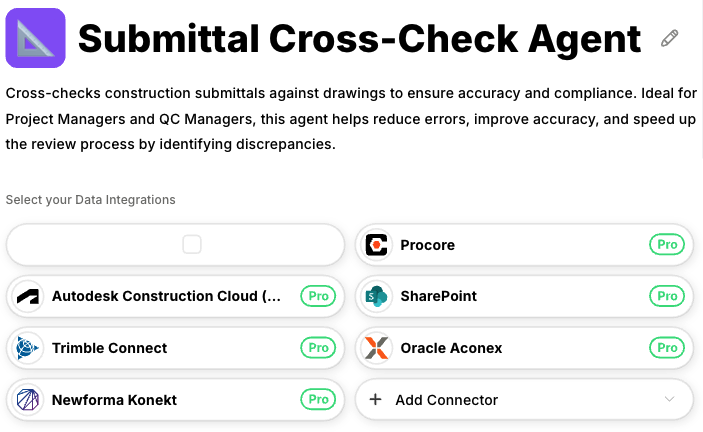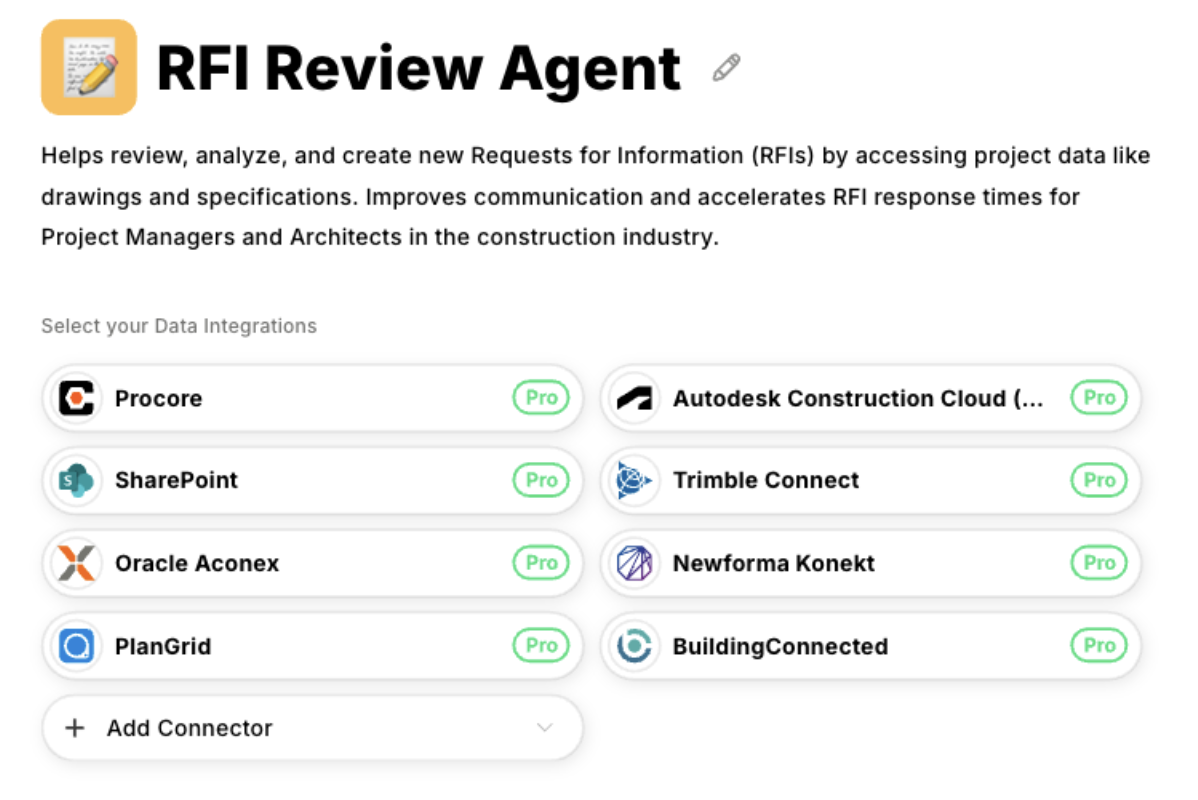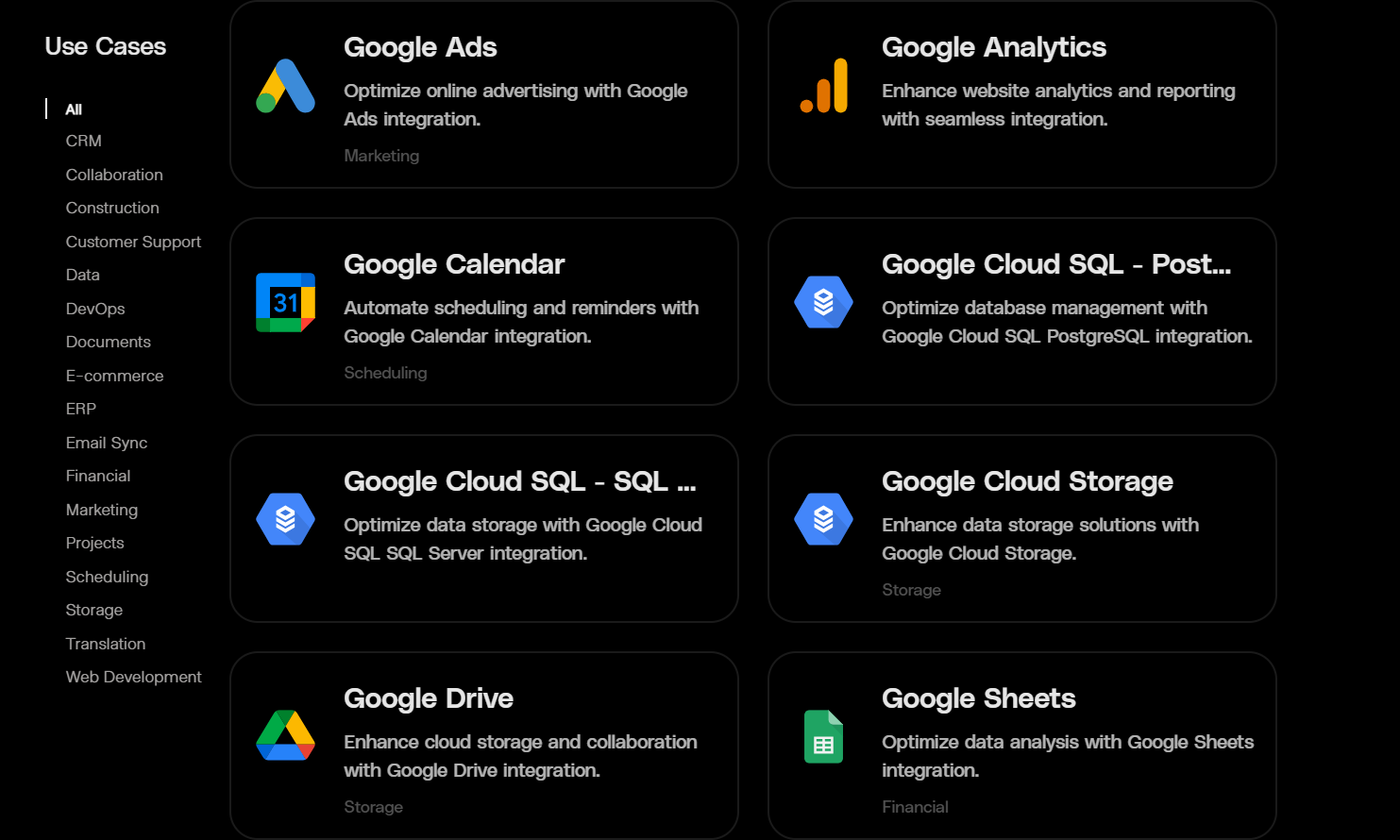This article was last updated on January 21, 2026.
Project data scattered across disconnected construction project management platforms, with drawings in SharePoint, schedules in Primavera, specs in email attachments, and RFI responses buried in Procore threads, creates more than a technology headache. It's an operational crisis that compounds with every new project, every system update, and every team member who leaves with critical knowledge locked in their head.
AI agents are changing how construction teams extract answers from construction project management platforms, not by replacing the systems you've invested in, but by connecting them into something you can actually query.
How Scattered Construction Project Data Drains Resources
Construction generates massive amounts of data daily, including design documents, RFIs, submittals, change orders, daily reports, safety logs, and correspondence. Industry research indicates that poor data management practices create massive losses globally, with significant rework costs attributed directly to bad data and inconsistent documentation.
Data exists in abundance, but finding it requires knowing exactly where to look, what format it's in, and which version is current. This challenge affects different roles in distinct ways.
The Execution Gap for Operations Leaders
For VPs of Operations trying to enforce company-wide standards, scattered data creates a fundamental execution gap. You've documented how projects should run. You've established procedures for submittal review, RFI response, and change order management. But when project managers can't quickly access the right information to follow those procedures, consistency breaks down.
The result is that each project runs slightly differently, documentation standards vary, and institutional knowledge stays locked in individuals rather than captured in accessible systems.
The Pursuit Capacity Problem for Business Development
For business development leaders, the challenge manifests differently. Proposal processes depend on pulling historical project data, past performance metrics, and relevant qualifications, often requiring manual searches across fragmented systems like Procore, BIM 360, PlanGrid, and disparate ERP platforms. When that information sits fragmented across disconnected systems, pursuit capacity suffers, and proposal response times extend significantly, making win rates unpredictable.
AI agents address this by enabling business development teams to assemble comprehensive bid packages, cross-reference qualifications against project requirements, and generate proposal responses that synthesize data from all connected systems, transforming what typically takes days of manual data gathering into automated workflows that deliver faster, more competitive proposals.
How AI Agents Extract and Process Construction Data
AI agents in construction operate through REST API integrations that establish direct connections to your construction project management platforms, enabling systematic data extraction and task execution across systems like Procore, Autodesk Construction Cloud, and PlanGrid.
Rather than requiring manual navigation through multiple platforms, these API-based connections create unified access to project files, issues, and workflows that would otherwise remain siloed across disconnected systems.
When you ask an AI agent "What outstanding RFIs relate to electrical systems on the downtown project?", the agent executes a sequence of operations:
- Data extraction pulls information from connected platforms like Procore, Autodesk Construction Cloud, and PlanGrid through REST API integrations that provide programmatic access to project files, issues, workflows, and documentation
- Cross-referencing systematically validates project documentation against multiple sources, checking RFI responses against specification documents to ensure compliance, verifying that submittal data aligns with drawing requirements, and identifying conflicts between document versions
- Response assembly synthesizes findings into actionable answers, surfacing which RFIs remain open based on current documentation searches, what specification sections and contract clauses they reference, and whether similar questions have been resolved on related projects
This systematic approach ensures your team gets specific, verified information rather than generic search results.
The approach works because construction project management platforms have invested heavily in API infrastructure. Autodesk Platform Services provides programmatic access to project data, file management, and issue tracking through REST APIs, while Procore has built an extensive integration ecosystem that enables teams to connect diverse project systems.
These platforms are built for the kind of integration that makes intelligent querying possible.
Five Construction Workflows Where AI Agents Deliver Impact
The value of AI agents becomes concrete when mapped to specific construction workflows where manual information retrieval creates bottlenecks. The following use cases demonstrate how AI agents reduce manual effort while improving consistency across project teams.
Automate Submittal Verification and Compliance Checking
Using Datagrid's Deep Dive Spec Submittal Agent and Summary Spec Submittal Agent, project teams can automate comprehensive submittal-to-spec reviews.

These agents systematically compare submitted product data against project specifications to:
- Evaluate specification sections against submitted product data
- Cross-check compliance gaps and identify scope misalignment
- Flag buyout deltas, missing items, and critical discrepancies
- Surface compliance gaps before they become costly substitutions or rework
Rather than having your best PM spend hours on submittal review, AI agents handle the systematic comparison, surfacing the exceptions that require expert judgment while automating the verification work that currently consumes project management bandwidth.
Resolve RFIs Before External Escalation
Many RFIs can be answered using information already in project documentation. Datagrid's RFI Checker Agent executes systematic searches across project data.

The AI agent can:
- Search contracts, change orders, drawings, specifications, and submittals to determine whether incoming RFIs have existing answers
- Evaluates whether RFIs are valid, necessary, and appropriate to submit
- Analyze potential impacts to cost, quality, and schedule
This reduces burden on architects and engineers while accelerating response times. When an AI agent finds that a similar question was resolved three months ago with an ASI, your team can respond immediately instead of waiting for external input.
Query Construction Projects Using Natural Language
VPs and project managers can ask questions in plain language and receive answers synthesized from multiple data sources. "What are the outstanding safety issues on the Atlanta project?" pulls from incident reports, inspection logs, and correspondence across connected platforms, without requiring manual searches through each system.
This capability transforms how leadership monitors project health. Instead of requesting reports that take days to compile, decision-makers can query current project status directly.
Identify Change Order Patterns Across Projects
AI agents analyze change patterns from historical change-related documents (e.g., FCDs, NCRs, RFIs) to identify recurring issues, linked events, and cumulative impact over time, shifting change management from reactive cost tracking to proactive pattern recognition.
When your team can see that a particular trade has generated similar change requests across multiple projects, you can address root causes rather than processing each change order in isolation.
Accelerate Bid Document Analysis
Preconstruction teams can process bid packages, cross-reference specifications against historical data, and flag potential issues before investing pursuit resources. AI agents automatically handle bid document analysis by:
- Analyzing submitted qualifications against project requirements
- Identifying missing experience or capability gaps across bidder submissions
- Cross-referencing specifications against historical project data
This accelerates qualification decisions and ensures consistent evaluation criteria across your business development team, regardless of who's running the pursuit.
How to Get Started with AI Agents
AI agents connect directly to your existing construction project management platforms, requiring no system overhauls or lengthy implementation cycles. Most teams can deploy their first agent and start seeing results within weeks, not months. As you scale usage, three areas help maximize long-term value:
- Data connectivity through pre-built integrations that pull from your existing platforms without requiring data migration
- Security controls that protect sensitive contract and project information through role-based access
- Team adoption that builds naturally as users see AI agents surface answers faster than manual searches
Start with High-Impact Use Cases
RFI resolution and submittal verification make ideal starting points because they have clear success metrics and well-defined data sources. These workflows let teams experience immediate time savings while building confidence in agent-driven processes.
As you expand AI agent usage across more workflows, teams looking to maximize results can take optional steps to improve data consistency over time:
- Audit data completeness across all project systems
- Establish standardized capture protocols for field documentation
- Map current data flows between estimating, field reporting, financial, and project management systems
As agents process your project data, they can also help identify gaps and inconsistencies that may have gone unnoticed, effectively improving your data quality as a byproduct of regular use.
Maintain Human Oversight for Critical Decisions
Construction contracts contain competitively sensitive pricing, terms, and specifications. While AI agents dramatically reduce manual research time, human review remains important for contract interpretations, cost estimates, and schedule recommendations. The goal is freeing your team from repetitive information gathering so they can focus expertise where it matters most.
Scale Based on Proven Results
Once initial use cases demonstrate value, expand to additional workflows and projects. Teams typically see meaningful reductions in project costs and timeline deviations, along with improvements in workplace safety through better data accessibility. Scale based on what's working rather than projected capabilities.
Build AI Agents That Reflect Your Construction Standards
The operational challenge in construction isn't that teams don't know how to execute well. Your best PMs, your most effective BD managers, your senior account managers have developed approaches that work. The problem is that their methods exist as tribal knowledge rather than scalable systems.
AI agents offer a path to codify those standards. When you document what "good" looks like (e.g., how submittals should be verified, how RFIs should be evaluated, how client requests should be handled), you can configure AI agents to enforce those procedures automatically.
Datagrid's platform connects to over 100 data sources, including leading construction project management platforms like Procore, PlanGrid, and Autodesk Construction Cloud.

The platform's construction-specific agents handle submittal verification, RFI checking, change order analysis, and document comparison, executing against your project data to surface the answers your teams need. Datagrid offers an extensive library of construction-specific agents designed for document processing, project data integration, and workflow automation.
For VPs of Operations, this means company-wide standards enforced consistently across projects, not just documented in procedures no one follows.
For business development leaders, it means proposal processes that execute the same way whether your top performer is running them or not.
Create a free Datagrid account to connect your construction platforms and start querying project data with AI agents that execute your workflows automatically.













